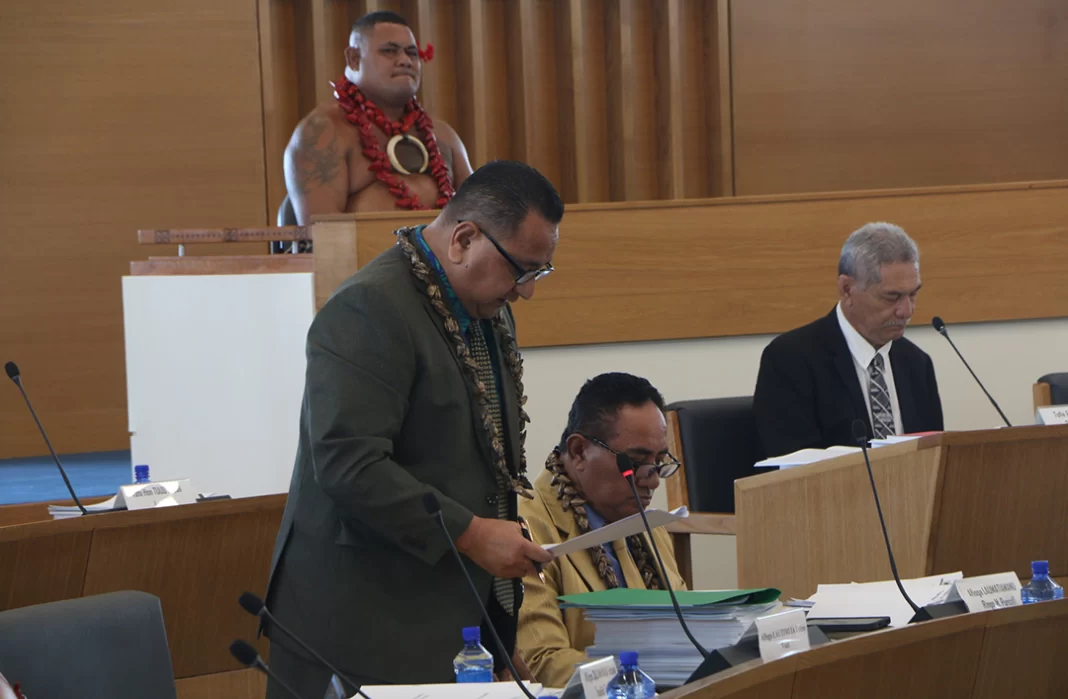Apia, Samoa – In a comprehensive address to Parliament yesterday, Samoa’s Minister of Finance presented the 2024/2025 Budget Statement, outlining key fiscal measures and strategic initiatives aimed at fostering economic growth, social development, and environmental resilience.
Economic Recovery and Growth Projections
The Finance Minister highlighted Samoa’s robust economic recovery, noting a 10.2% annual growth by December 2023. This rebound is attributed to strong economic activities following the border reopening in August 2022. Visitor arrivals surged by 81.2%, and remittance flows increased by 2.2%, contributing to the economic upturn. The official gross foreign reserves reached an all-time high of $1.3 billion tala, equivalent to 13.1 months of import cover.
Looking ahead, the government projects a 6.6% growth rate for the current year, up from the initially expected 5.0%. For FY2024/25, growth is forecasted at 5.8%. The annual inflation rate, which decreased to 5.9% in March 2024, is expected to ease further to 5.0% by June 2024.
Strategic Outcomes and Initiatives
Social Development
Significant investments in education and healthcare are central to the government’s strategy. The annual One Government Grant for education now stands at $18.0 million tala, supporting all levels from early childhood to secondary education. The percentage of teachers with higher education qualifications has increased, reflecting the government’s commitment to quality education.
In healthcare, seven out of nine district hospitals are now staffed with multidisciplinary teams, and infrastructure upgrades are ongoing. Social protection measures, including the Shelter Financing Initiative and Disability Benefit Scheme, have been expanded to support vulnerable groups.
Economic Diversification
The government is diversifying tourism with new community-based attractions such as the Palauli Heritage Trail and Satoalepai Wetland Turtles. The First Harvest Program continues to promote food security. Financial support for the private sector includes $6.0 million tala to Samoa Business Hub and $8.0 million tala in concessional loans through the Development Bank of Samoa.
Governance and Security
The National Security Policy and Implementation Strategy 2024 has been approved, alongside the acquisition of the new Police Patrol Boat Nafanua III. Governance improvements include the adoption of the Internal Audit Charter across 22 government agencies.
Environmental and Climate Resilience
The Samoa Energy Sector Plan aims to expand investments in renewable energy and improve efficiency. The country is also participating in the Climate Action Pathways for Island Transport program, receiving electric vehicles to reduce greenhouse gas emissions. Marine protected areas have increased from 6,509 hectares in 2022 to 11,373 hectares in 2023.
Infrastructure Development
Key infrastructure projects include the re-opening of the Satitoa Shipyard, improvements at Faleolo International Airport, and the construction of the new Savalalo Market, set for completion by 2025. Rehabilitation of the Upolu West Coast Road is expected to finish by June 2024.
Budget Strategy
The 2024/2025 budget records a deficit of 2.1% of GDP. The government is not introducing new taxes but aims to improve tax compliance. Total receipts are anticipated to increase by 7%, driven by an 18% rise in external grants and a 4% increase in ordinary receipts.
Expenditure Priorities
The total expenditure for the fiscal year is estimated at $1.16 billion tala, a 4.0% increase from the current year. Key allocations include:
- Ministry of Agriculture and Fisheries: $20.4 million tala
- Ministry of Education and Culture: $135.5 million tala
- Ministry of Health: $156.7 million tala
- Ministry of Works, Transport, and Infrastructure: $50.8 million tala
The Finance Minister mentioned that the budget reflects Samoa’s commitment to sustainable economic growth, social development, and environmental resilience. With a focus on resilience, the government aims to create a stable and secure environment that fosters long-term prosperity.
The budget will now be debated in Parliament, with implementation set to begin in the new fiscal year.





